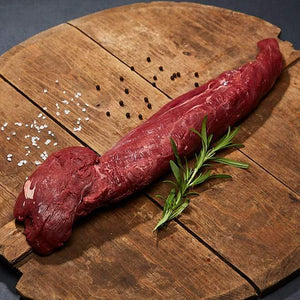Moose Meat is a protein-rich meat that many people find tasty. It’s also rich in a variety of nutrients that can benefit the health and wellbeing of anyone eating it.
Moose meat is often sold frozen in individual cuts or ground into burger patties. It’s best to avoid raw moose meat, as it can increase the risk of foodborne illness.
Overview of Moose Meat as a Food Source
Moose meat is a nutritious food that contains a variety of nutrients. It is also low in saturated fat, making it an ideal choice for people on a low-fat diet.
It is also high in protein, iron and B vitamins. These nutrients are essential for your body’s metabolization and immune response.
Like all big game meats, moose meat requires a little extra care when cooking, but once you get the hang of it, you may want to make it a regular in your diet. With only 1 gram of fat per serving, moose meat is a very low-fat option compared to beef and other fatty meats.
Culinary Uses and Traditional Dishes
Moose meat is one of the most unique delicacies that people in certain parts of the world enjoy eating. It is a meat that is considered a part of the venison family and that many people have never tasted.
Moose meat is a lean protein and is packed with vitamins and minerals that are important for health. It also contains less fat than most other types of meat, making it an excellent choice for those who are watching their weight or want to lower their cholesterol levels.
Availability and Market Trends
Moose meat is a delicacy that can only be obtained through hunting, making it a rare and expensive food source. However, there are reputable online retailers that sell high-quality moose meat.
As with most wild game, moose meat is lean and requires careful preparation to tenderize it and bring out its flavor. A couple of tricks to make moose meat seem more tender include cooking longer or adding marinating tenderizers overnight before cooking.
Moose meat has a taste that is quite unlike beef and other animal meat. This taste can be attributed to its musky and pungent flavor. This flavor is often referred to as the “gamey flavor.”
Health Benefits and Concerns
Moose meat is an excellent source of protein, iron and B vitamins. It is also low in fat and high in potassium.
Several studies have found that moose meat is rich in a class of fatty acids called FAHFAs, which may help manage and prevent diabetes. These fatty acids are known to stimulate insulin secretion in people with diabetes and can improve glucose tolerance.
In addition, moose meat is an excellent source of omega-3 fatty acids. These fatty acids can be helpful for people with arthritis and inflammatory conditions. They can also increase the immune system and decrease stress levels.
Sustainability Issues
When moose populations decline, this impacts Indigenous peoples’ food security and health. Moose declines also impact on ways of life, such as traditional hunting and the practice of ceremonies associated with harvesting moose.
Observations shared by community members revealed that moose numbers on traditional territories are declining. Similarly, moose monitoring data collected by the Ontario Ministry of Natural Resources and Forestry (MNRF) over a 16-year period (2001-2016) indicated a similar trend.
Almost half of all participants from Biigtigong Nishnaabeg, Shawanaga First Nation and Magnetawan First Nation expressed concern over the decline in moose and how it affects their way of life and well-being. This includes increased reliance on grocery store foods and the need to travel further to harvest moose for food and ceremonial purposes.

